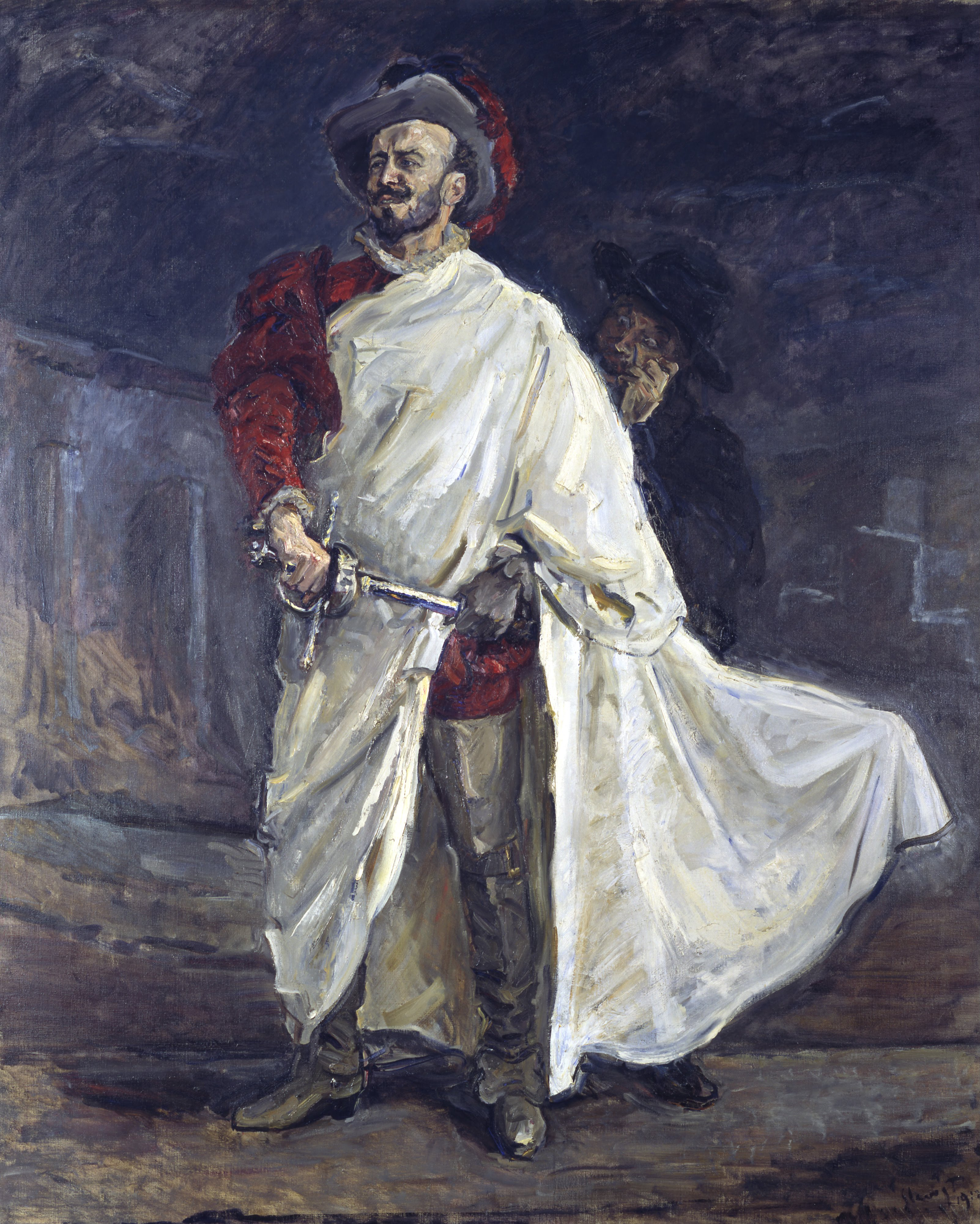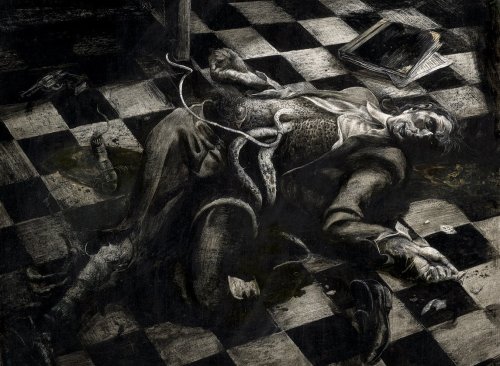The Red Moon of Meru
 Sunday, February 5, 2012 at 13:58
Sunday, February 5, 2012 at 13:58  It was not long ago – not long ago at all, in fact – that colonies, empires and slavery were accepted by the majority of the Western world as an integral part of history. That is to say, the white man's burden was to help those so constricted by their barbaric ways as to have no alternative but subjugation to more enlightened minds (I hope it is clear what type of nonsense such a viewpoint entails; if it does not, it might be better for the still-confused to migrate permanently to other pages). As we have moved into the second century of forgiveness and tolerance towards cultural differences, there has persisted the not unrelated question of religious freedom. To wit, each can worship his own god, in his own temple, as long as I am allowed to do the same, and as long as no one is judged for doing or not doing so. Yet the notion of religious freedom to a true believer must come with a smirk: if he truly believes in his faith then he knows all others are untrue, and his accession to religious freedom quickly becomes his consent for widespread delusion. The more ecumenical among us have sought to remedy this sensational paradox by insisting that there are far more than ninety-nine, or even ninety-nine thousand names of God. In other words, all those of faith are worshiping the same being because if God does truly exist then He is everything: He is the universe or billions of universes or He is nothing at all. What He is most certainly not is Australia or the South Pole, a distant, generally unknowable or unreachable part of our world that claims to be its master. The problem is that cultural relativism has led, among many pseudo-intellectual imbeciles, to attempts to destroy cultures with the argument that everything is a social construct (a more nebulous term could not be devised), from knowledge to god to gender, and so forth and so on until we all collapse in boredom. Nothing has any meaning, nothing really makes any sense, so let's divide up the money, support all the minorities and call the whole world even. What postmodernism and its parallel puppet shows of charlatans do not account for is true, everlasting genius that cannot be relativized, and there is nothing of greater genius than what created us all. Should we then shudder and squawk at religious relativism? A question not so much answered as caressed in this tale.
It was not long ago – not long ago at all, in fact – that colonies, empires and slavery were accepted by the majority of the Western world as an integral part of history. That is to say, the white man's burden was to help those so constricted by their barbaric ways as to have no alternative but subjugation to more enlightened minds (I hope it is clear what type of nonsense such a viewpoint entails; if it does not, it might be better for the still-confused to migrate permanently to other pages). As we have moved into the second century of forgiveness and tolerance towards cultural differences, there has persisted the not unrelated question of religious freedom. To wit, each can worship his own god, in his own temple, as long as I am allowed to do the same, and as long as no one is judged for doing or not doing so. Yet the notion of religious freedom to a true believer must come with a smirk: if he truly believes in his faith then he knows all others are untrue, and his accession to religious freedom quickly becomes his consent for widespread delusion. The more ecumenical among us have sought to remedy this sensational paradox by insisting that there are far more than ninety-nine, or even ninety-nine thousand names of God. In other words, all those of faith are worshiping the same being because if God does truly exist then He is everything: He is the universe or billions of universes or He is nothing at all. What He is most certainly not is Australia or the South Pole, a distant, generally unknowable or unreachable part of our world that claims to be its master. The problem is that cultural relativism has led, among many pseudo-intellectual imbeciles, to attempts to destroy cultures with the argument that everything is a social construct (a more nebulous term could not be devised), from knowledge to god to gender, and so forth and so on until we all collapse in boredom. Nothing has any meaning, nothing really makes any sense, so let's divide up the money, support all the minorities and call the whole world even. What postmodernism and its parallel puppet shows of charlatans do not account for is true, everlasting genius that cannot be relativized, and there is nothing of greater genius than what created us all. Should we then shudder and squawk at religious relativism? A question not so much answered as caressed in this tale.
You will know the detective by his cassock, so we'll get to him in a moment. Our characters, gathered for a charity event that might simply be yet another gambit at tax evasion, are fivefold: Lady Mounteagle, the hostess; Lord Mounteagle, the host in name only and a devoted follower of Eastern beliefs – whatever that means might depend on whatever Lord Mounteagle thinks you might like to hear; two visiting gentleman, the rather ambitious young politician James Hardcastle, and Lady Mounteagle's rather surly, contrarian cousin, Tommy Hunter, a doubting Thomas when it comes to the otherworldy; and last and somehow least, Phroso the Phrenologist, "a lean, shabby, sunburnt person, with an almost improbably fierce black moustache and whiskers." If you know something about British literature, you will know that Phroso is very likely not what he appears to be because his physical description exactly matches a stereotype for someone completely different. Apart from this quintet, we have two men of religion. One is a confirmed monk of intellectual bent who is all too often ignored or underestimated because he is deemed a slave to his faith and because, doubtless, a small, lumpy fellow who usually comments in a quiet mumble is not going to inspire fear in most casual observers. The second is "a great religious leader in his own country, a Prophet and a Seer," and his name is the Master of the Mountain.
We may ask what mountain, although Lord Mounteagle and those of like conviction would deem such a simple question too simple for their man, but we do need to explain our title. Meru's blood moon is a gem, one of those gigantic rubies we may imagine once adorned a maharaja's headgear or a silk pillow in a cool, shadowy palace chamber. The jewel is on display chez Mounteagle because lord and lady are, well, "mad," a "popular way of saying that she and her husband were interested in the creeds and culture of the East," and in making sure that everyone admires them for these selfsame interests. It is also on display for the implied reason that it would be unsafe anywhere else, when precisely the opposite would be true: once an item is placed in a museum, even in a pompous fraud's private collection, it becomes a thousand times more valuable in the eyes of insatiable capitalists (satiable capitalists, a far less destructive species, would never have anything to do with jewels or jewel thieves). We know from the story's onset that the moon will be stolen, it is only a matter of culprit and motive. And when the ruby finally goes missing and the Master of the Mountain himself is wrestled into captivity, he is quick to degrade his captors:
'You are learning a little,' he said, with insolent benevolence, 'of the laws of time and space; about which your latest science is a thousand years behind our oldest religion. You do not even know what is really meant by hiding a thing. Nay, my poor little friends, you do not even know what is meant by seeing a thing; or perhaps you would see this as plainly as I do .... If you were to be utterly, unfathomably, silent, do you think you might hear a cry from the other end of the world? The cry of a worshipper alone in those mountains, where the original image sits, itself like a mountain. Some say that even Jews and Moslems might worship that image; because it was never made by man. Hark! Do you hear the cry with which he lifts his head and sees in that socket of stone, that has been hollow for ages, the one red and angry moon that is the eye of the mountain?'
Since this is a Chesterton tale, we know what befalls those with preternatural pretensions. We are also relieved to see our detective, small and humble as he always seems to be in physical appearance, already addressed by Lady Mounteban – I mean, Mounteagle – on page two of our story. Unfortunately, Father Brown is asked the one question that no man of faith can answer with a straight face or without some inward sorrow. And if, by the end, one person will regret having committed the crime and another will regret not having done so, we may decide to forgive them both. After all it's the ecumenical thing to do.





